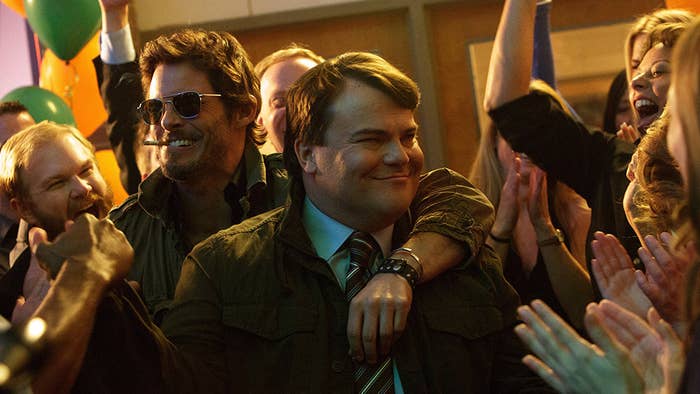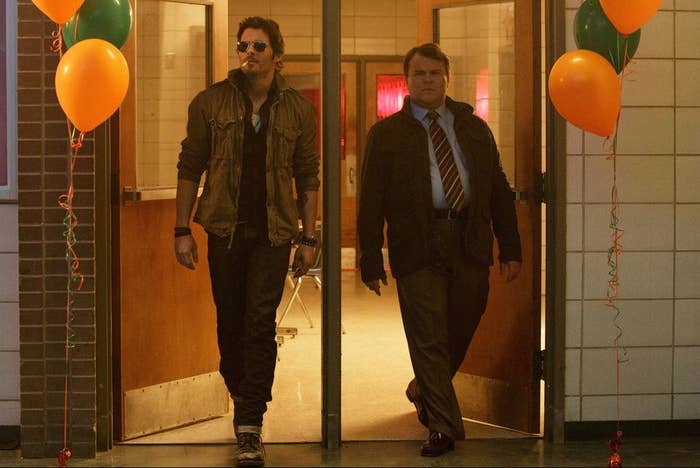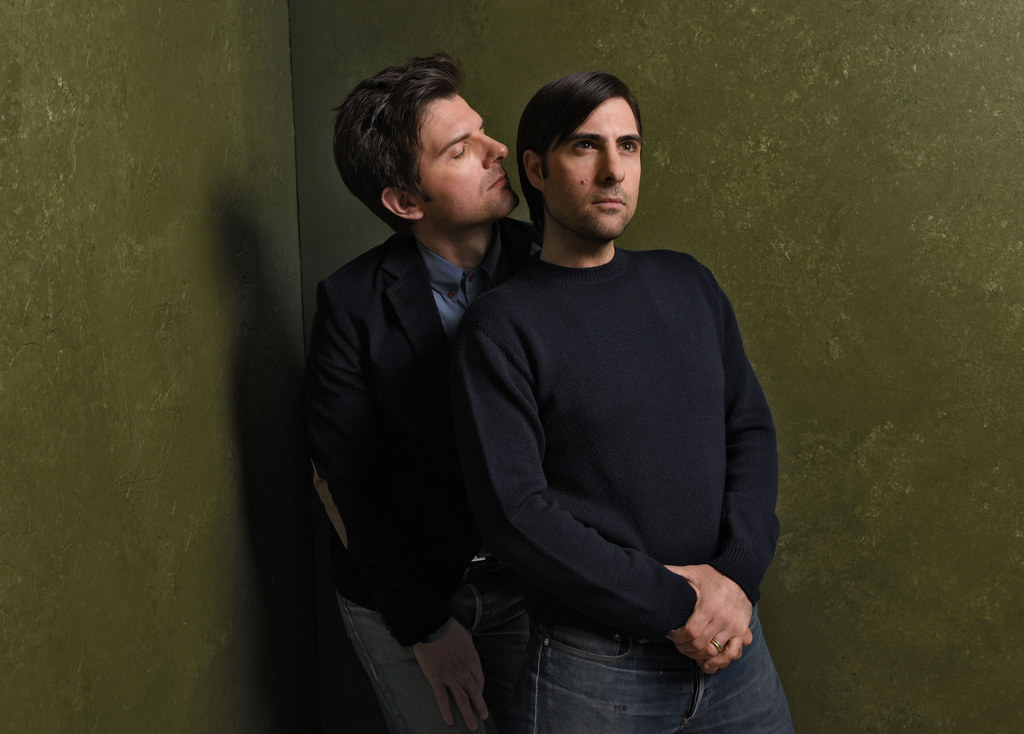
PARK CITY, Utah — There's something a little gay about close male friendships, but don't tell heterosexual men that. That homoerotic tension, lingering just below the surface, is what popularized the phrase "no homo" — for two men to show physical affection for one another is to invite a gay reading. And depending on how progressive the men involved are, this sort of ambiguity can be perceived as either totally harmless or terrifying.
Cinematic relationships between male friends are often fraught with sexual tension: Traditionally speaking, it goes unspoken. In Top Gun — to cite one of the more obvious examples — the relationship between Maverick (Tom Cruise) and Iceman (Val Kilmer) is so sexually charged that the film is frequently regarded as a campy gay classic. There are countless other cinematic male friendships that fall into a similar category, some more deliberate than others: Though never consummated, Plato (Sal Mineo) has overt romantic feelings for Jim (James Dean) in Rebel Without a Cause.
The 2000s ushered in the bromance genre: Films like Superbad, I Love You, Man, 21 Jump Street, and This Is the End ramped up the homoerotic subtext but still kept things heterosexual. The gay stuff was, at worst, played for laughs or, at best, acknowledged as a natural aspect of close male friendships. Of course these men love each other and maybe it goes deeper — "not that there's anything wrong with that," to borrow a phrase from Seinfeld. But while small-minded people might assume that they're fucking, these bros are just really comfortable with their heterosexuality and masculinity. The homoerotic subtext to homosocial relationships — by definition, nonsexual bonds between men — remains intact without anyone having to cross the line.
But it's 2015: Films no longer need to rest as heavily on subtext, when the text itself can explore that familiar (and for many men, uncomfortable) slippage between the homosocial and the homoerotic. At the 2015 Sundance Film Festival, two movies in particular delved into the mostly uncharted terrain of male sexual fluidity. While not ostensibly "gay movies" — an outdated designation that nonetheless still has an effect on marketability — The D Train and The Overnight present platonic male friendships where, for one reason or another, sex is not off the table.

In The D Train, which premiered Jan. 23 at Sundance, Jack Black plays Dan Landsman, a schlubby loser overly fixated on his 20-year high school reunion. When he stumbles upon a commercial featuring his old classmate Oliver Lawless (James Marsden), he becomes obsessed with getting Oliver to come to the reunion. Dan believes that netting a famous actor like Oliver — here it's worth noting that his conception of "fame" is deeply flawed — will inspire others to show up at the reunion.
And here's where the SPOILER WARNING comes into play. Dan cons his way into a "work" trip to Los Angeles, where he thrusts himself on Oliver and flatters his way into Oliver's sad Hollywood lifestyle: lots of drinking, cocaine, and pretending to know Dermot Mulroney. After a couple nights of debauchery, Dan finds himself at Oliver's apartment. What happens next might be considered a twist, but it's so central to the plot of The D Train that it seems silly to keep it under wraps. Suffice it to say Dan returns home from L.A. feeling more intimate with Oliver than ever before and wondering what it all means.
This is not a film about discovering one's sexuality. Early on, Oliver explains that he doesn't like labels, and that he sleeps with men and women. And while Dan's gay dalliance might suggest that he's not 100% straight, figuring out where he falls on the Kinsey scale is beside the point. There's also no gay panic in the film: Sex, whatever the context, is what it is. It's not so much about why sex happens but that it does: Sometimes the closeness between two male friends takes a turn, a reality that straight men nervously distance themselves from, and that is rarely depicted on-screen. The particular relationship between Dan and Oliver recalls the Plato-Jim dynamic in Rebel. There's always something innately sexual about hero worship, whether or not it gets consummated.

The Overnight, which also premiered Friday at Sundance, is a different story, and talking about its homoeroticism is challenging without giving too much of the plot away. Alex (Adam Scott) and Emily (Taylor Schilling) are new to Los Angeles and looking for friends. When their son RJ (R.J. Hermes) hits it off with another boy, Max (Max Moritt), they arrange a playdate for the kids and end up spending the night with Max's eccentric parents, Kurt (Jason Schwartzman) and Charlotte (Judith Godrèche). Long after the kids are asleep, the adults continue playing well past their bedtimes, and The Overnight becomes a hilarious and consistently surprising sex comedy.
As in The D Train, a conversation about sexual orientation never comes into play in The Overnight. The messy (naked) situations these characters find themselves in are more about curiosity and fun than about self-discovery. And while the act of coming out remains an important one for many queer people, there's something so refreshing about not talking, just doing. In these films, men slide from the homosocial to the homoerotic with a whisper, not a bang. (Which is not to say there isn't banging too.)
Male sexual fluidity feels like an important new frontier in representation, and it's fitting that indie films are among the first to take the plunge. These movies tend to be more about themes and feelings than rigid definitions: There is a certain freedom to making something noncommercial and outside of the mainstream that allows for the honest depiction of sexuality as a spectrum, not a binary. It was at Sundance in 2009 that Lynn Shelton's Humpday premiered, a film in which Ben (Mark Duplass) and Andrew (Joshua Leonard) plan a sexual encounter with little regard for their heterosexuality. These films take the question of why seemingly straight men would have sex with one another and answer it with a shrug.
Both The D Train and The Overnight have sold at Sundance, which means they're due for a theatrical release. Though still indies, they'll be spreading the idea of male sexual fluidity to a wider audience. For straight men in particular, the concept may continue to be threatening — it challenges the archaic but persistent notions of what it means to be a man. But as movies like The D Train and The Overnight remind us, there's no sense in denying the queer urges so many people feel — and the fact that the bond between two men, however straight they claim to be, is often begging to be consummated.

